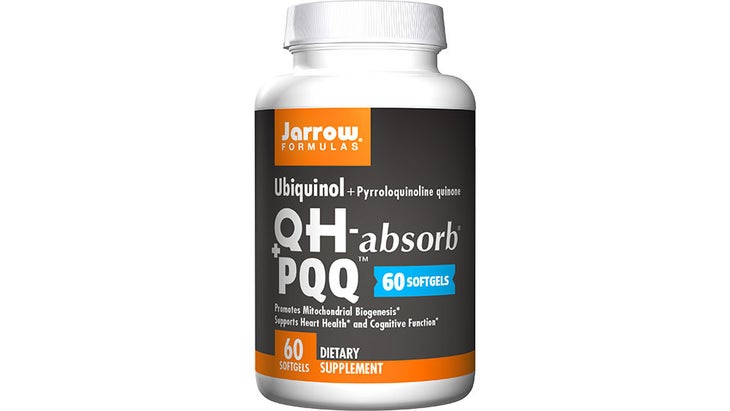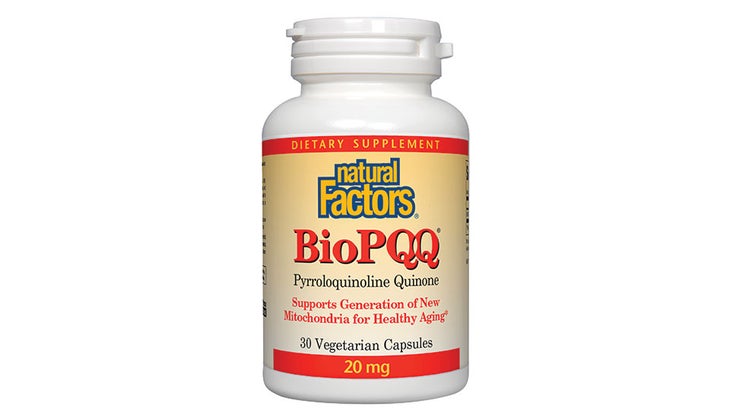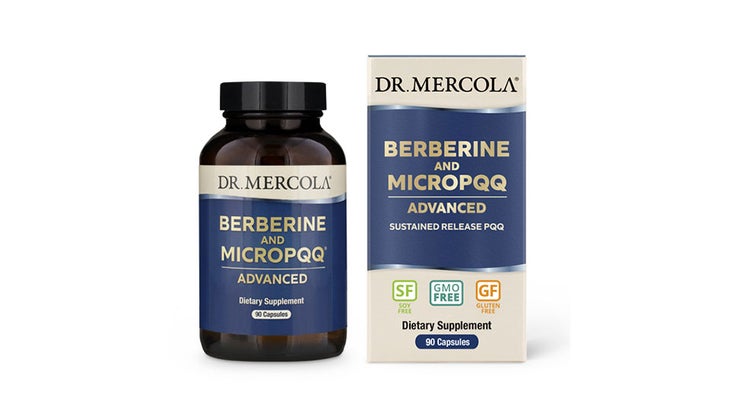PQQ for Energy and Brain Health
This unique supplement helps enhance memory, attention, energy levels, and sleep, while also reducing inflammation and LDL cholesterol. Sound too good to be true? Here’s why it’s not.
Get full access to Outside Learn, our online education hub featuring in-depth nutrition, fitness and adventure courses, and more than 2,000 instructional videos when you sign up for Outside+..
Short for “pyrroloquinoline quinone,” PQQ is an essential nutrient that the human body must obtain from food. PQQ is naturally present in soil and is also produced by soil bacteria. Plants absorb it, and we obtain it by eating the plants. In addition, some of the bacteria in fermented foods and beverages make PQQ.
Found in all tissues of the body, PQQ is concentrated in breast milk and is a required growth factor for development. Animal studies show that a deficiency stunts growth, impairs immunity, and causes reproductive and metabolic issues.
PQQ as an Energy Supplement
As the power-generating components of cells, mitochondria turn food and oxygen into energy. They’re also vital for healthy communication among cells and play a role in destroying unhealthy cells, as in the case of cancer.
Healthy mitochondria are essential for life, but they deteriorate and die off as we get older—that’s a major reason why kids have so much more energy than their parents and grandparents. Damaged and deteriorating mitochondria are linked to all of the major diseases of our time, from Alzheimer’s and Parkinson’s to chronic fatigue, heart failure, and diabetes.
PQQ is unique in that it enhances “mitochondrial biogenesis,” a process that increases the number of healthy mitochondria in aging cells. In addition to improving energy production, this characteristic of PQQ shifts some of the aging process into reverse gear.
In a study at the University of California, Davis, researchers gave a small group of men and women PQQ supplements and tested the effects 76 hours later. Using blood and urine tests, researchers found that PQQ improved mitochondrial performance and reduced chronic inflammation. The effective dose was 0.3 mg of PQQ per kilogram of body weight—20 mg of PQQ for a 150-pound person, as an example.
How PQQ Enhances Mental Function
Neurons—cells in the nervous system and brain—suffer from deteriorating mitochondria over time. In addition to impairing memory and attention, mitochondrial degeneration is linked to diseases such as Alzheimer’s and Parkinson’s. By regenerating mitochondria, PQQ can help arrest and possibly reverse some of this damage.
A study of 41 elderly people in Japan tested the effects of PQQ on mental function. For 12 weeks, those in the study took either 20 mg of the supplement or a placebo. Cognitive tests showed that PQQ improved memory and attention, and brain scans found increased blood flow.
Other PQQ Research Highlights
Improved sleep and lower cholesterol are other PQQ benefits identified in human studies. A study of 17 men and women found that 20 mg of PQQ taken daily for 8 weeks helped people to fall and stay asleep, feel more alert in the morning, and experience less anxiety and hostility.
Another study tested PQQ on a group of 29 adults between the ages of 40 and 57 who had elevated triglycerides and cholesterol. Taking 20 mg of PQQ daily for up to 2 weeks did not alter triglyceride levels, but it did reduce elevated levels of harmful LDL cholesterol.
The Best Way to Benefit from PQQ
Studies typically use 20 mg daily, or 0.3 mg per kilogram of body weight. To calculate your daily dose, divide your weight in pounds by 2.2 and multiply that number by 0.3. As an example, the dose for a 180-pound person would be 24 mg: 180 divided by 2.2 (82) multiplied by 0.3.
Plant foods in general contain small amounts of PQQ; natto, spinach, green tea, parsley, green peppers, and kiwi are some of the top food sources.
PQQ Products



References
Finlay, Josh. 11 PQQ Benefits + Foods, Side Effects, Dosage, Reviews (2019).
Harris, Calliandra & Chowanadisai, Winyoo & Mishchuk, Darya & Satre, Mike & Slupsky, Carolyn & Rucker, Robert. (2013). Dietary pyrroloquinoline quinone (PQQ) alters indicators of inflammation and mitochondrial-related metabolism in human subjects. The Journal of nutritional biochemistry. 24. 2076-2084. 10.1016/j.jnutbio.2013.07.008.
Jonscher, Karen & Rucker, Robert. (2019). Pyrroloquinoline Quinone. 10.1016/B978-0-12-814466-4.00013-6.
Kawasaki, Yuuki & Suzuki, Naoko & Takara, Tsuyoshi. (2015). Effects of Pyrroloquinoline Quinone Disodium Salt Intake on the Serum Cholesterol Levels of Healthy Japanese Adults. Journal of nutritional science and vitaminology. 61. 233-40. 10.3177/jnsv.61.233.
Marcone, Perry. Generate Fresh Mitochondria with PQQ. (2011).
Newman, Tim. What are mitochondria? (2018)
University of Colorado Anschutz Medical Campus. Common antioxidant may guard against liver disease (2017)
Yamamoto, Tetsuro & Okamura, Hisayoshi & Tsuda, Akira & Kowatari, Yasuyuki. (2012). Effects of Oral Supplementation with Pyrroloquinoline Quinone on Stress, Fatigue, and Sleep. Funct. Foods Health Dis. 2. 307-324. 10.31989/ffhd.v2i8.81.